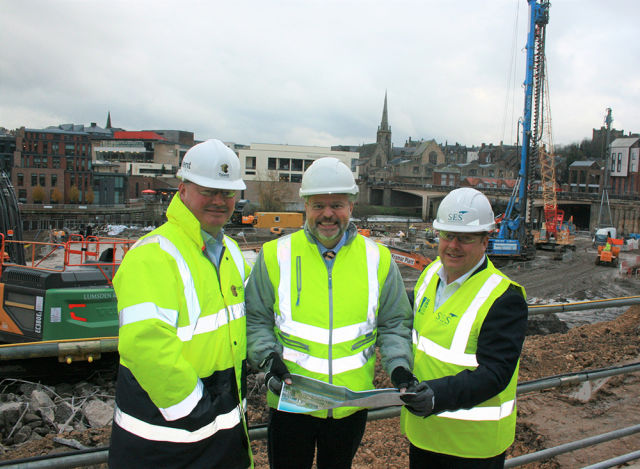SES Engineering Services wins place on major regeneration project

SES Engineering Services has been appointed to deliver mechanical, electrical and plumbing services on Phase One of Milburngate, the prestigious mixed-use regeneration scheme on site in Durham city centre. This is a multi-million-pound contract win for its North East office working with main contractor, Tolent.
Milburngate is being delivered by the Arlington Richardson Development Partnership. Phase One, which accounts for 70 per cent of the entire Milburngate scheme, will create over 5,500 sqm of retail and leisure space, which will become home to leading brands including restaurant and bar operators. There will also be 5000 sqm of speculative office accommodation and 153 luxury build-to-rent apartments as well as 600 parking spaces will also be created.
SES’ business director for North and Scotland Steve Joyce, pictured with Michael Rutherford of Tolent (far left) and Ian Beaumont Milburngate project director(centre), says: “Typical of a mixed-use development of this type and size, the building services requirements will be varied to meet the needs of the occupiers. To allow the range of services to knit together seamlessly, we will deploy both our BIM Level 2 expertise and offsite manufacturing capabilities to maximum effect.”
Delivery of Phase One has been enabled by a £120m forward funding commitment from leading real estate investment management firm, LaSalle Investment Management.








